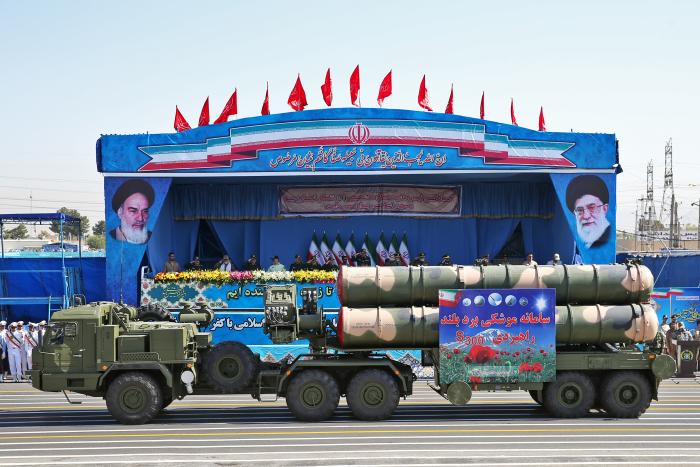by Ehud Eilam
Would Israel risk losing American support and perform a preemptive strike on Iran's nuclear sites? Dr. Ehud Eilam discusses Israel's strategy to thwart the Iranian nuclear threat
 |
| S-300 missile system displayed by Iran's army during a military parade (Photo: AP) |
On September 22, 2016, the Israeli Prime Minister Benjamin Netanyahu said in the UN that Israel would not allow Iran to develop nuclear weapons. If Iran beaches the nuclear agreement, the one from July 2015, Israel might attack Iran’s nuclear sites before Iran produces a nuclear weapon. As a result, a war might break out between the two countries, and then the United States might not lend Israel full support, a matter the Jewish state would have to consider in advance.
Nonetheless, it is possible that the Israeli government could conclude it must take military action, despite the risk of losing American assistance, albeit temporarily. Israel might assume it could initially manage alone, banking on a later improvement of its relations with the United States, as indeed happened after past crises between the two states.
Iran has been assimilating the S-300, an advanced antiaircraft missile. Defeating it would require the Israeli Air Force (IAF) to train accordingly and to update its equipment. The IAF has already conducted exercises relating to this weapon system, in Greece. Russia has argued that the S-300 is a defensive system that wouldn't put Israel at risk. Yet as Russia knows very well – particularly following lessons from wars in the Middle East – antiaircraft batteries can be used for offensive purposes.
The most famous example was the 1973 showdown, when Soviet antiaircraft missiles, in both the Golan Heights and Sinai, protected Arab ground forces when they attacked the Israeli lines. If Iran were to acquire a nuclear bomb, for example, the S-300 would pose a problem for Israel in any preemptive strike or retribution against Iran.
Some of Iran’s nuclear sites are heavily protected by natural or artificial fortifications. In contrast to the American armed forces, it is unlikely that Israel’s military could inflict heavy damage to Iran’s nuclear infrastructure. Israel would also be seen by many as the aggressor, although it is Iran that is planning to produce a nuclear weapon and is threatening to destroy Israel.
Thus, Israel’s goal would be to point out the danger the Middle East faces because of Iran’s nuclear project. The international community might intervene, in order to avoid a future war between Israel and Iran, which would be far more destructive if Iran were to acquire nuclear weapons. Israel might, therefore, hope that as a result of its strike, Iran would come under substantial pressure to dismantle most of its nuclear infrastructure.
The Israel Defense Forces (IDF) has had to prepare for a future war by improving its active and passive defense. This factor would play a key role since Iran’s retribution would be based on several hundred missiles that could hit Israel. Iran could also initiate terror attacks against Israeli or Jewish targets around the world. It is possible, however, that Iran would restrain itself to avoid becoming entangled in a war when the timing was wrong for it. Iran faces other challenges, both internal and external, such as fighting the Islamic State. It thus might choose to postpone any confrontation with Israel, while focusing on rebuilding its nuclear infrastructure following the potential Israeli raid. There is a risk, however, for Iran that Israel would attack again.
***
This article is based on Ehud Eilam’s article: “Israel in the Face of Evolving Security Challenges,” the Middle East Review of International Affairs, Vol. 19, No. 2, Summer 2015
Ehud Eilam
Source: http://www.israeldefense.co.il/en/content/implications-israeli-attack-iran
Follow Middle East and Terrorism on Twitter
Copyright - Original materials copyright (c) by the authors.
No comments:
Post a Comment